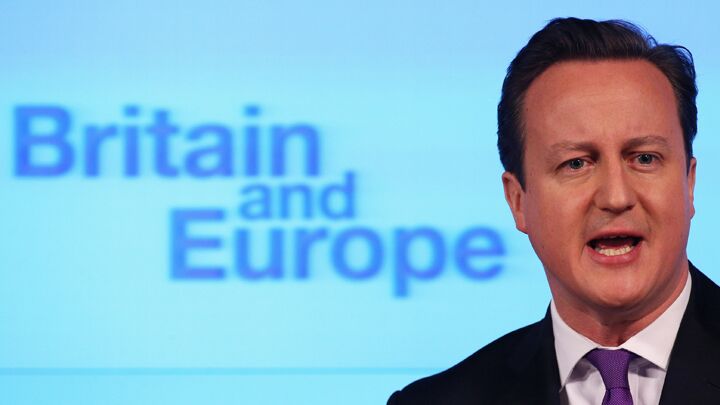
European Court of Justice OKs EU Attack on the City of London
The European Court of Justice ruled on April 30 that a small subset of EU nations can carry out what is effectively an attack on the city of London.
A group of 11 member states plan to introduce a financial transaction tax (ftt) that requires banks, pension funds, etc. to pay a tax whenever they buy or sell shares or other financial instruments.
Authorities attempted to implement the tax before, but it was a disaster. The tax will harm the economies of the countries that enact it. It could be especially damaging to London.
The 11 nations, including France and Germany, want the tax to apply everywhere. So if brokers in New York or Singapore trade in bonds issued by a German company, these 11 nations insist that the United States or Singapore should collect the tax and hand it over to the European authorities. But if (and when) the U.S. and Singapore tell the EU to get lost, there’s nothing the EU can do to get the money.
London is different. Because Britain is in the EU, ftt nations can legally force Britain to collect the tax and hand over the money. Trading in London will suddenly become much more expensive than trading in New York and business will leave.
Thinktank Open Europe lucidly explains the ecj’s ruling:
Imagine you had agreed to let your neighbor build a new house based on a certain agreement and set of plans. Halfway through building it becomes clear that he has adopted a new plan which will hamper your view or infringe on your land. You appeal to the council but they rule that it is too soon to tell where the house will end up and that they can only rule when the house is built. Tearing down a house is much messier and more costly than stopping one being built in the first place. Hardly seems efficient or fair, does it?
The Telegraph’s international business editor Ambrose Evans-Pritchard is livid. “The European Court of Justice has come close to destroying the last good reason for Britain to stay in the European Union,” he wrote. “Judges in Luxembourg seem no longer willing to uphold the integrity of the EU single market. Or rather, they seem complicit in subverting it.”
As Evans-Pritchard points out, a key, though unwritten, rule of the EU is that no nation should be overruled or challenged in a sector where they are the EU’s leading player. So Germany’s car industry is handled with care. The EU increases poverty around the world because French agriculture must be subsidized. But they have no problem with attacking Britain’s banking sector which—no matter how much even the British may dislike their bankers—is essential for maintaining the nation’s prosperity.
But this ruling also raises the question of whether the EU will stick to its own written law, let alone its unwritten codes. “It is a matter of whether Britain can still trust the ecj to uphold the single market,” said Open Europe’s director Mats Persson.
If the ecj keeps going down its current path, Evans-Pritchard writes, “[t]he EU is then an arbitrary power without a rule of law. There is no longer much to be lost from leaving.”
“Nobody should be too shocked if the ecj is taking sides in this guerrilla warfare,” he wrote. “My own dealings with the body a decade ago covering three free speech cases—Bernard Connolly, Marta Andreasen and Hans-Martin Tillack—led me to conclude that the ecj is a rubber-stamp for executive power, a reflexive enforcer of the European Project.”

This is merely the latest ecj attack against Britain. When the Lisbon Treaty was negotiated, Britain received a crystal-clear, black-and-white opt out from the EU’s Charter of Fundamental Rights. But the ecj decided that the charter applied anyway.
“We’re dealing with a fundamental difference in attitudes to the rule of law,” wrote Conservative mepDaniel Hannan last year when the issue begun receiving press attention. “The EU has always been ready to subordinate the dots and commas of the rules to political imperatives.”
Now it has happened again. The EU gives Britain a set of guarantees only to have a court decide they don’t apply.
This behavior could inflict serious harm on Britain’s economy, but it is also increasingly alienating Britain from the EU. The percentage of people for and against EU membership seems finely balanced at the moment. But if the ecj keeps acting this way, it will push more people into the out camp.
For more on the EU’s attacks on Britain’s economy, read our article “Is the EU Out to Get Britain?”
